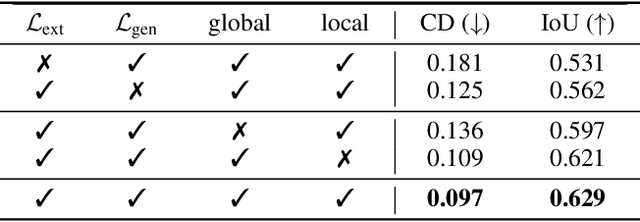Deep Deformable Models: Learning 3D Shape Abstractions with Part Consistency
Paper and Code
Sep 02, 2023



The task of shape abstraction with semantic part consistency is challenging due to the complex geometries of natural objects. Recent methods learn to represent an object shape using a set of simple primitives to fit the target. \textcolor{black}{However, in these methods, the primitives used do not always correspond to real parts or lack geometric flexibility for semantic interpretation.} In this paper, we investigate salient and efficient primitive descriptors for accurate shape abstractions, and propose \textit{Deep Deformable Models (DDMs)}. DDM employs global deformations and diffeomorphic local deformations. These properties enable DDM to abstract complex object shapes with significantly fewer primitives that offer broader geometry coverage and finer details. DDM is also capable of learning part-level semantic correspondences due to the differentiable and invertible properties of our primitive deformation. Moreover, DDM learning formulation is based on dynamic and kinematic modeling, which enables joint regularization of each sub-transformation during primitive fitting. Extensive experiments on \textit{ShapeNet} demonstrate that DDM outperforms the state-of-the-art in terms of reconstruction and part consistency by a notable margin.
 Add to Chrome
Add to Chrome Add to Firefox
Add to Firefox Add to Edge
Add to Edge